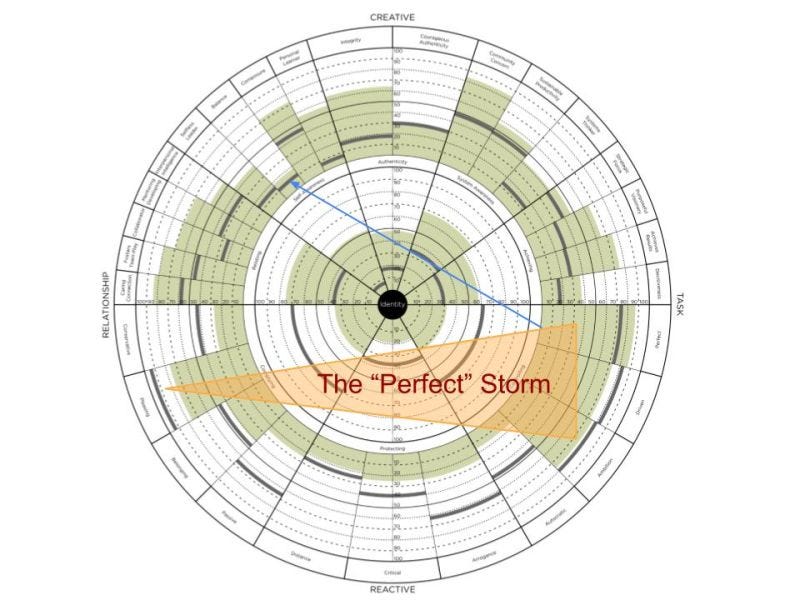The "Perfect" Storm
"My life is run by this cycle of pleasing, perfection, and effort. I'm exhausted - but there is still so much more to do."
The quote above is from a senior leader I debriefed recently (using the Leadership Circle Profile). It speaks to one of the most common and pernicious patterns I see that I call "The Perfect Storm."
The pattern typically originates in high Pleasing - a need to seek approval and validation from others. It starts in childhood with a strong desire to meet and surpass expectations and receive positive confirmation from those in authority (parents, teachers, family members)
The leader quickly learns that if you do EVERYTHING perfectly, the Pleasing need is satisfied. A story emerges: I must be Perfect. To not be Perfect is to let others down - and I can never disappoint others!
The story typically evolves into something like: I must be perfect, or I'll let others down - AND I'm/it's never good enough; I can always do more! Now Driven joins the narrative and creates a perfect storm of motivation, self-criticism, achievement, and eventual exhaustion.
Like in the Profile below, look at the Balance score to see the price they pay. You sometimes see a high self-score for balance and low scores from respondents. This gap is an indication the pattern might be a blind spot. Typically they have been operating this way for so long that a different approach never occurred to them. You'll also frequently notice low self-scores overall - an unwelcome gift from their "inner critic."
Another place to explore is their Relating scores. If Relating remains relatively high (such as with this Profile), that may indicate the pattern is pointed inward (I am never enough!). If the Relating scores are low and there is high Critical and Arrogance, it may indicate the pattern is pointed outward (Others are never good enough!).
As an aside, my experience is that female leaders tend to point Perfect inward on themselves while male leaders more often project it onto others.
The Perfect Storm pattern is one of the most difficult to confront. Often the level of self-criticism drowns out even the most well-intended coaching. Part of their identity narrative rests on not being or doing enough. Anything that challenges that belief feels risky.
To gain a foothold on this pattern, I often suggest a practice of mindful self-compassion. I won't go into details here, but others may have resources they can link to in the comments below. I'll put a few there as well.
The unlocking move for the Perfect Storm Pattern is love and compassion - for the inner child who first wrote this script, and for the adult seeking to self-author a new way forward.



